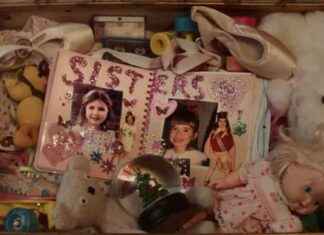‘1984'
Presented by: Prime Stage Theatre
When: March 3-12 at 8 p.m. Fridays-Saturdays, 8 p.m., 2:30 p.m. Sundays
Admission: $25-$30; $12-$17 for students
Where: New Hazlett Theater, North Side
Details: 724-773-0700 or primestage.com
Richard Blair appearances
George Orwell's son will discuss his father's works at two events while he's in the Pittsburgh area.
• Noon, March 4 at Barnes & Noble, Cranberry Square Shopping Center, Cranberry. Free. 724-772-6200 or barnesandnoble.com
• 1 p.m. March 5, “Afternoon Tea with Richard Blair,” New Hazlett Theatre, Pittsburgh's North Side. $50 admission includes tea, 2:30 p.m. performance of “1984” and a post-show discussion with Blair.
Sign up for one of our email newsletters.
Updated 31 minutes ago
Richard Blair was only a child when “1984” was published in 1949 — far too young to appreciate the novel or understand what his father, George Orwell, was trying to say.
Now 72, Blair knows the book well.
“What does it mean to me? The same as it does to other people,” Blair says. “He writes this essentially as a warning about what could happen, that's what he's doing in ‘1984.' I'm at the moment re-reading it, and it's a very good book, slightly spoiled, as he (Orwell) would say. He was suffering from tuberculosis at the time of the writing it, but nevertheless, it's quite satisfying.”
Blair will present “Afternoon Tea with Richard Blair” on March 5 as a guest of Prime Stage Theatre's production of “1984” at the New Hazlett Theater on Pittsburgh's North Side. He also will visit the Barnes & Noble in Cranberry on March 4 to speak and sign copies of the novel.
Blair, who was adopted by Orwell (whose real name was Eric Arthur Blair) and his wife Eileen O'Shaughnessy, was 5 when Orwell passed away in 1950. His memories of his father are fragmentary, but nonetheless vivid, especially a nearly disastrous boating accident in 1947 off the west coast of Scotland.
“My father was quiet and sort of laid back,” Blair says. “Essentially he was a very good father who was absolutely devoted to me.”
The current political climate has spurred new interest in Orwell's dystopian work.
The classic tale of a society run by Big Brother in which facts are distorted and suppressed in a cloud of “newspeak” topped the Amazon.com best-seller lists earlier this month. According to USA Today, Penguin Books ordered a 75,000-copy reprint of “1984.” In addition to Prime Stage's production, a British adaptation of “1984” will open in June at the Hudson Theatre on Broadway.
Prime Stage's production of “1984” seems timely, but the decision to stage the play was made two years ago. The biggest obstacle was finding a suitable script.
“I was looking for a script that wasn't in your face, pushing a political one thing or another,” says co-founder and producing artistic director Wayne Brinda. “There are scripts out there that were very angry in tone. I'm looking for a script that really tells the story of Winston, this man who is caught up in this world and what happens to him.”
Prime Stage's script was adapted by Robert Owens, Wilton E Hall Jr. and William A Miles. It not only follows the book faithfully, but also captures another element that is sometimes glossed over: the relationship between the characters Winston Smith and Julia.
“It really brings that part of the story into it,” Brinda says, “the idea of love, the idea of relationship, and communicating with another person is extremely important. It's not just people sitting on stage and spouting political sayings. There's a human side to the story and it's extremely important for us to understand what's going on, and what Orwell was writing.”
Blair admits that “1984” is a challenge for any theater company. He has seen productions that are on the mark, and some that fall short.
“It's not easy to turn ‘1984' into a play, but it has been done,” Blair says. “Lorin Maazel (former music director of the Pittsburgh Symphony Orchestra) tried to turn it into an opera, and it sank like a stone.”
Maazel's production premiered at the Royal Opera House in Covent Gardens, London, on May 3, 2005. It has also been transformed for the dance, notably by the Northern Ballet Company in London in 2015.
But no matter the presentation, Orwell and his works are constant reminders of the need to be observant and on guard. “1984,” “Animal Farm” and “The Road to Wigan Pier” are proof that Orwell was not only of his times, but ahead of them.
“To me he was just an ordinary everyday man with the extraordinary ability to observe the world and see the ridiculous lies told by governments and big companies,” Blair says of his father. “He had the ability to put this into words that people could understand, in the way that he could weave a story. He was simply warning us of what could happen, how power corrupts and absolute power corrupts absolutely.”
While “1984” is often valued for its prescient warnings about the abuse of power and governmental encroachment on personal freedoms, there are other elements in the novel that are instructive. Brinda thinks that Orwell's focus and language and communication provides an opportunity to open avenues to conversation.
“Let's talk about truth,” Brinda says. “Let's not get caught up in what somebody tells us. Let's look at both sides. Let's open up dialogue with real words, real ideas, and let's find ways to communicate rather than be yelling at each other. I think that's really important.”
Rege Behe is a Tribune-Review contributing writer.
Our editors found this article on this site using Google and regenerated it for our readers.







